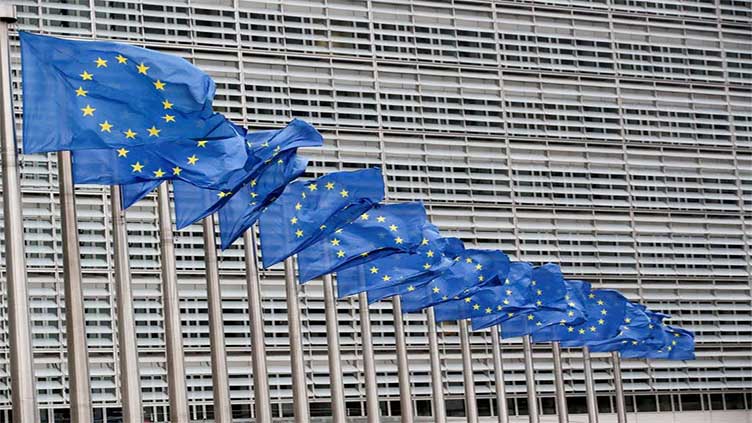Lawmakers set to sue EU leaders for 'horse-trading' with funds to Hungary

World
Lawmakers set to sue EU leaders for 'horse-trading' with funds to Hungary
BRUSSELS (Reuters) – The European Parliament will sue the European Union's executive for unblocking funds to Hungary while trying to persuade the country to drop its veto on aid to Ukraine last year, despite concerns about rule of law in Budapest, two lawmakers said.
The case centres on the European Commission's decision to restore Hungary's access to some 10.2 billion euros ($11.15 billion) in aid last December, while Budapest was blocking 50 billion euros in aid for Kyiv.
Despite the EU criticising Hungary for years for undercutting democratic checks and balances under Prime Minister Viktor Orban, the Commission said last year that Hungary had fulfilled the necessary rule of law conditions to get the funds.
Many disagreed.
"EU funds can only be granted if the rule of law is functioning," said Green German EU lawmaker, Daniel Freund. "10 billion euros were released for Viktor Orban without the necessary reforms having been fulfilled."
"This kind of horse-trading - EU money in exchange for a veto - must not be allowed in the EU," he said.
The Commission rejected the accusation, saying that the two decisions were not related.
"The Commission considers that it acted in full compliance with EU law and will defend its decision before the EU courts," a spokesperson said.
The parliament's decision to sue helped drag the Hungarian forint to a new one-year low, analysts said. There was no immediate comment from the Hungarian authorities.
Another lawmaker who helped initiate the case, German liberal Moritz Koerner, said the lawsuit would ask the bloc's top court, the Luxembourg- European Court of Justice (ECJ) to establish clarity on the link between EU funds and democracy.
Both lawmakers hoped the case could lead to Hungary being ordered to return the money, or an equivalent being cut from future payouts to Budapest.
The ECJ said the top sanction would be revoking the December decision and it would be up to the Commission to determine how to implement any such ruling.


